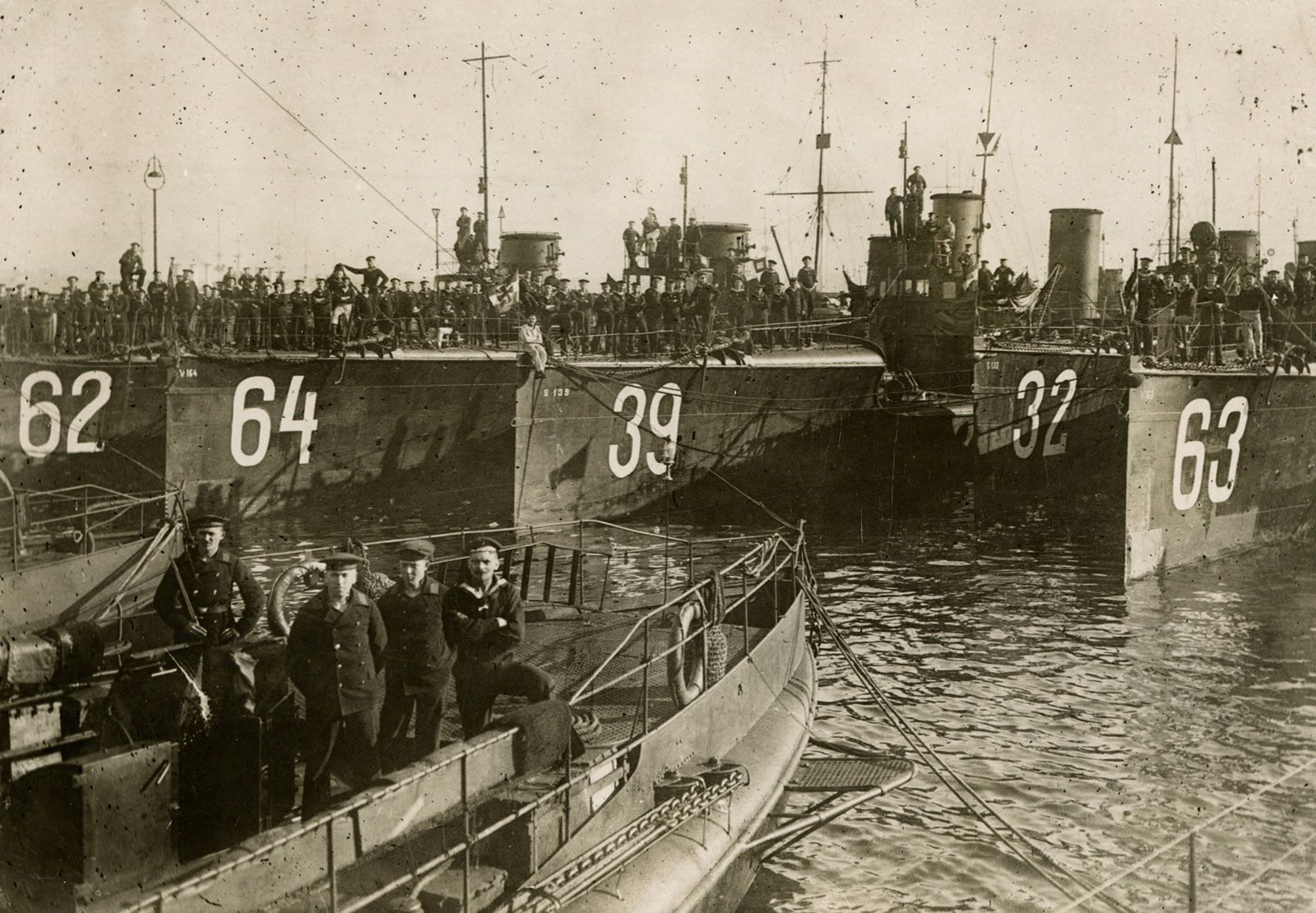In the long run British sea power and American supplies proved decisive. The Allied command of the sea made it possible to draw on the resources of the rest of the world, and in particular to transfer large numbers of British and later American troops to the crucial western front.
Sea power also enabled the Allies to shut Germany and its allies off from overseas resources. The Allied blockade slowly constricted Germany, limiting not merely military supplies for the armies but also food supplies for the civilian population. At the end of the war many Germans were suffering from malnutrition, and the death rate among children and old people was soaring, important factors in German surrender.
Furthermore, it had been the doctrine of the freedom of the seas that had brought the United States into the war. In this sense Germany lost the war at sea doubly, because the submarine had made obsolete the traditional rules of war on blockade, stop-and-search before attack, and provision for the safety of passengers and crews. The United States had insisted on their observance, and vet they could not be observed if the submarine was to exploit its main strategy: remaining beneath the surface.
Nevertheless, when the Germans launched their unrestricted submarine warfare, they made serious inroads against the merchant ships that were essential to Britain. By the end of 1917 some 8 million tons of shipping had been sunk by the Germans, most of it by submarines. The submarine menace was only slowly overcome by extensive use of convoys, depth bombs, antisubmarine patrols, and the development of small, fast subchasers and destroyers.
The navy of surface vessels that the Germans had built up since the 1890s never played a decisive part in the war itself. German surface raiders caused severe damage in the first year, but in January 1915 British battle cruisers defeated the Germans in the battle of the Dogger Bank, and for the remainder of the year the Germans limited themselves to mine laying and to concentrating on their Unterseeboot (submarine) warfare.
In 1916 a new commander sought to use the German high seas fleet more effectively; destroyer groups conducted raids, battle cruisers bombarded the English coast, and in May the Germans tried to trap part of the British grand fleet in harbor. Forewarned, British Admiral Sir John Jellicoe (1859-1935) put to sea, and in the running battle of Jutland, fought in the North Sea May 31—June 1, 1916, the British forced the Germans to run for port, although British losses were much heavier. The German surface navy never again seriously threatened Britain’s command of the sea in European waters.

